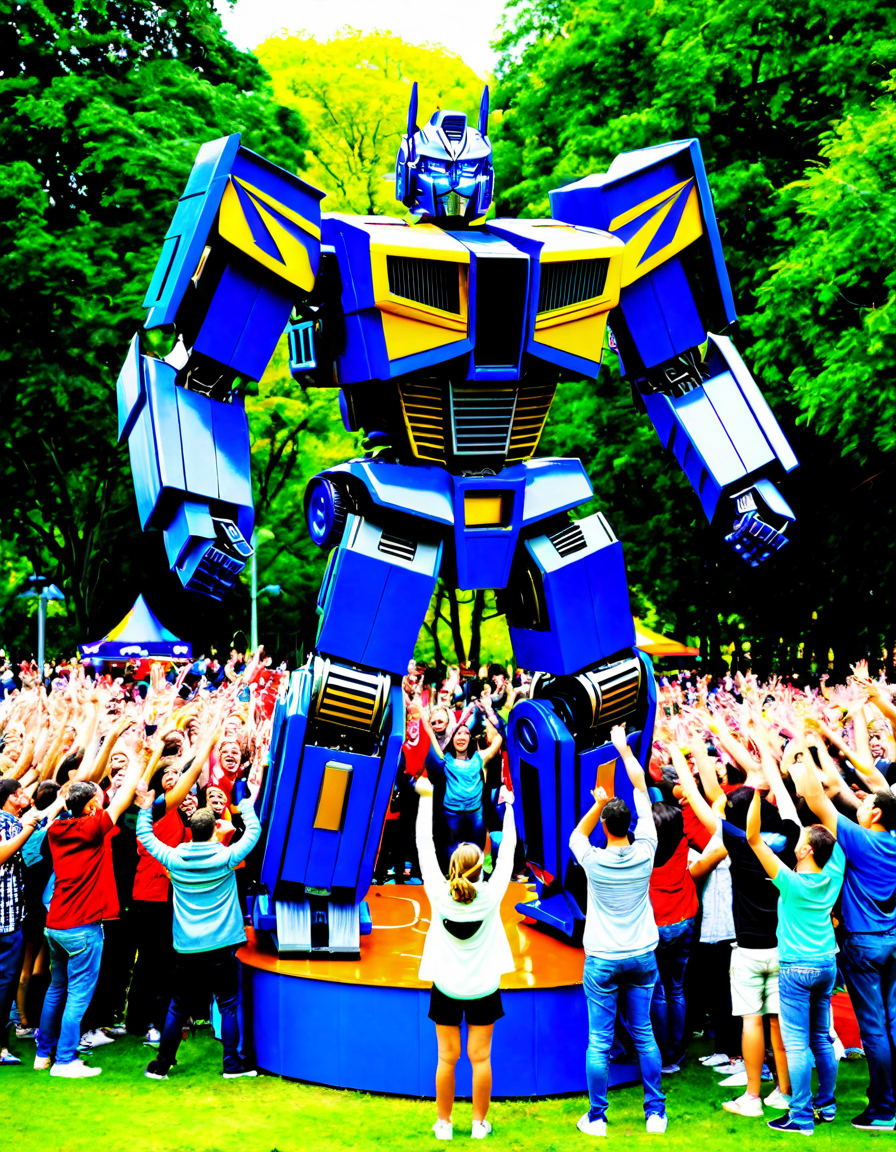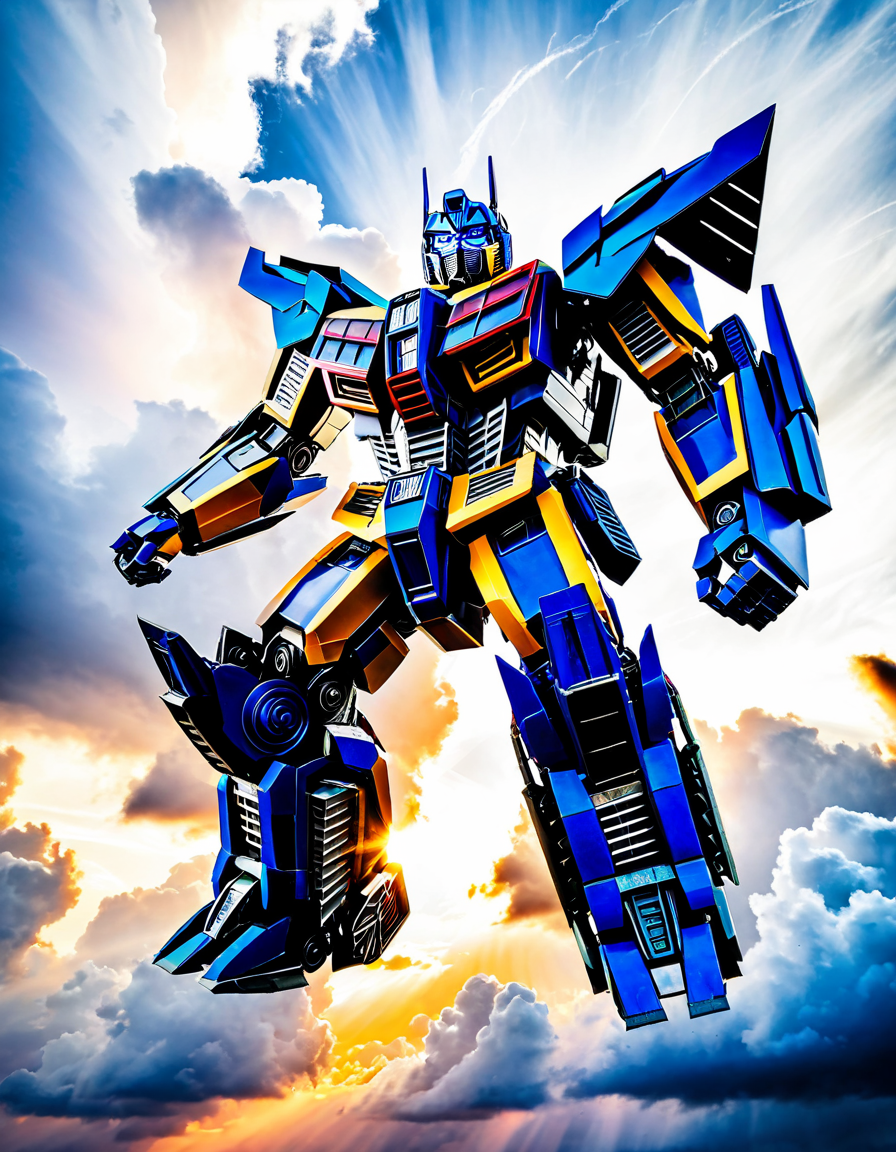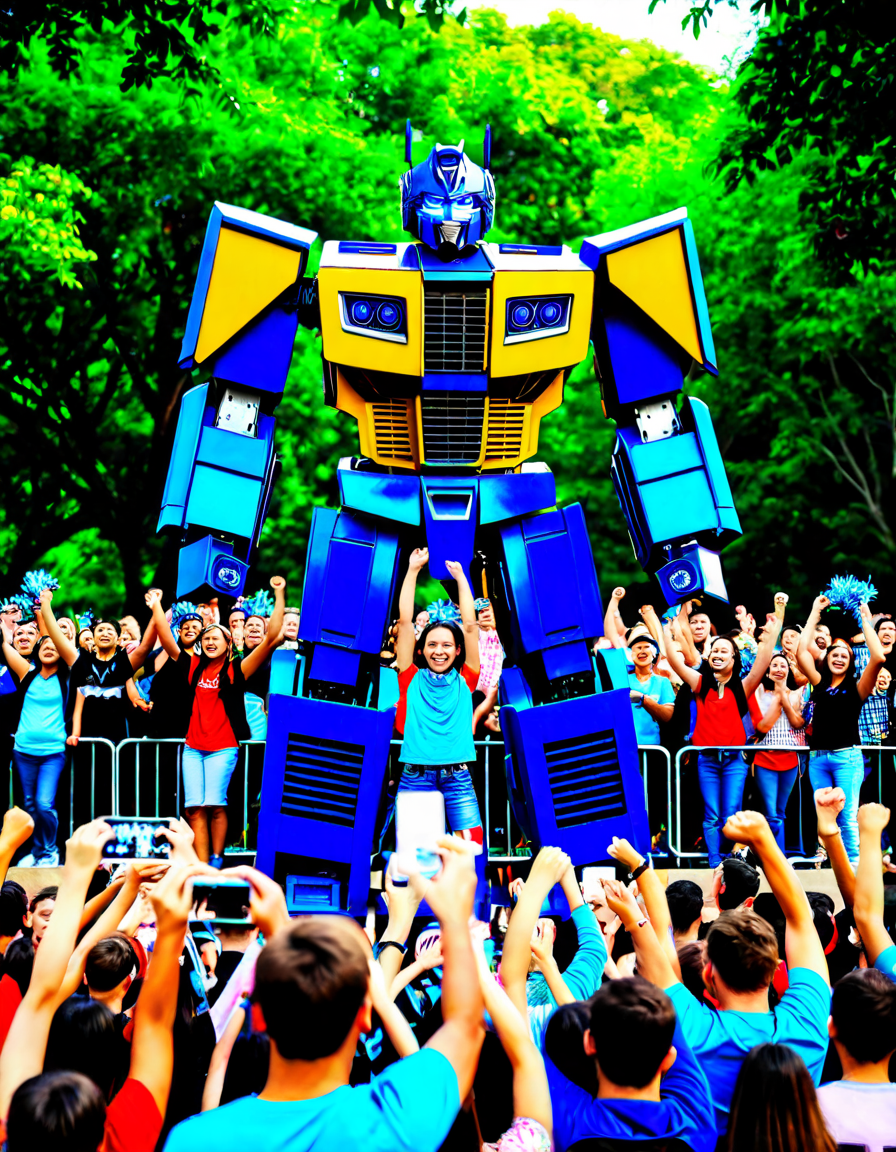Since their inception, Transformers have become a staple of pop culture, weaving themselves into the fabric of entertainment and sparking discussions that resonate with fans around the globe. They’re not just toys or blockbuster movies; they symbolize diverse ideologies and cultural narratives that provoke thought and engage audiences deeply. Let’s dive into the intricate world of Transformers, exploring their heroic traits, the narratives they embody, and how they reflect a sweeping range of societal beliefs.

Top 5 Transformers and Their Ethos
When we talk about the Transformers franchise, it’s vital to consider the characters that stand at the forefront of epic confrontations. These heroes (and villains) embody messages that transcend the screen. Here’s a closer look at five pivotal Transformers and the profound ethos they represent.
1. Optimus Prime: The Patria of Heroes
As the unwavering leader of the Autobots, Optimus Prime encapsulates the essence of heroism and self-sacrifice. He’s not just fighting for himself; he’s standing up for humanity, embodying the value of patria, or homeland. In battles against his nemesis Megatron, Optimus showcases a commitment to justice that resonates deeply, making him a symbol of hope and protection.
Every time you hear him say, “Autobots, roll out!” it’s a clarion call to defend the greater good. His ethos digs into themes of liberty and honor, which are pivotal in military narratives and personal relationships alike. While the flashy CGI battles might seem like the main attraction, it’s these core values that keep audiences coming back for more.
2. Megatron: The Fallen Antagonist
On the flip side, we’ve got Megatron—the embodiment of ambition gone unchecked. Once a gladiator, his journey to becoming the ruthless leader of the Decepticons reveals a descent fraught with moral ambiguity. He embodies the darker side of the power struggle, prompting intriguing conversations about tyranny and the toll of ambition.
Megatron’s character makes us ponder essential questions regarding justified versus unjustified warfare, a theme mirrored in many real-world conflicts and political dilemmas. His motivations often reflect that blurry line between strength and oppression. It’s fascinating how a robotic villain can inspire such profound discussions about the human condition.
3. Bumblebee: The Voice of the Marginalized
Then there’s Bumblebee, the Autobot who’s pure heart and relentless spirit make him a favorite. His inability to communicate verbally, relying instead on radio snippets, symbolizes the struggle of those often left unheard. This resonates with the incel narrative—a movement spotlighting the frustrations of societal marginalization.
Despite these challenges, Bumblebee’s courage and fierce loyalty shine through in battle. His journey emphasizes themes of identity, connection, and resilience, making him a beacon of hope for the voiceless. Every time Bumblebee transforms into his sleek Camaro form, he’s not just hitting the gas; he’s showcasing the power of perseverance.
4. Starscream: The Relentless Ambition
Starscream is a whirlwind of ambition, constantly teetering on the edge of loyalty and betrayal. His desire to overthrow Megatron creates a rich narrative of how personal aspiration can conflict with teamwork. Today’s landscape of relentless ambition often mirrors figures like Elon Musk, whose drive for innovation garners both admiration and controversy.
Starscream serves as a reminder that the quest for power can twist loyalty and breed discontent. Watching him scheme can prompt discussions about the cost of ambition and the fragile nature of alliances—factors that resonate in today’s competitive environments.
5. Hot Rod/Rodimus Prime: The Journey of Growth
Finally, we must mention Hot Rod, who undergoes a transformation to become Rodimus Prime. His evolution is a metaphor for personal growth and the bumpy road to leadership. Initially reckless, his journey to responsibility and maturity is relatable to anyone navigating the tricky transition from youth to adulthood.
His experience reflects the essence of potential, the trials of self-discovery, and the importance of adaptability. This mirrors many of today’s youth narratives, akin to exploring personal potential amid chaos. His transformation serves as compelling inspiration for those finding their way in challenging times.

The Cultural Impact of Transformers: More Than Just Battles
The legacy of the Transformers franchise stretches beyond action-packed scenes and colorful characters. It has grown into a multi-dimensional phenomenon that often grapples with complex societal issues.
The Ethos of Pop Culture
In the various portrayals of Transformers, we see reflections of shifting societal values and historical anxieties. From the Cold War tensions of the 1980s to evolving fears post-9/11, these characters become vehicles for discussing ethical dilemmas and cultural conflicts. The battles waged in the series often symbolize deeper discussions about loyalty, morality, and the human experience, offering audiences a remarkable lens through which to view contemporary issues.
The engaging stories allow fans to think critically about their reality while enjoying high-stakes action. It’s captivating how a franchise that began with toys could evolve into discussions relevant to social commentary, reshaping pop culture in many ways.
Transformers and Masculinity in Crisis
Characters within Transformers intertwine with broader discussions about masculinity, especially in light of critical portrayals such as Homelander from “The Boys.” The stark contrasts between figures like Optimus Prime and Megatron stimulate discussions regarding toxic masculinity and the ongoing search for male identity.
This juxtaposition encourages inquiry into how traditional masculinity is viewed amidst evolving societal norms. With stories that are often vibrantly animated yet deeply contemplative, these characters resonate with audiences as they seek to make sense of shifting gender narratives in today’s world.
A Legacy Reimagined
As we explore the universe of Transformers, it’s clear these characters transcend their robotic forms. They are more than just figures in thrilling battles; they mirror our societal values, apprehensions, and aspirations. Through their stories, we glean insights into the broader struggles of good versus evil, ambition versus responsibility, and the quest for belonging in a chaotic environment.
The Transformers aren’t simply sculpted metal and blinking lights; they’ve become cultural icons igniting meaningful debates and conversations that go beyond entertainment. As their legacy continues to evolve, these mighty heroes remain as pertinent today as they were when they first sparked our imaginations.
Transformers have indeed transformed; they invite us to ponder larger questions and provoke introspection through pop culture, making them perennial favorites among fans and cinephiles alike. From dialogues about identity, like those embodied by Avicii, to discussions on nostalgia and societal dynamics reminiscent of Bill Nye‘s educational outreach, the reach of Transformers is vast and profound. As we prepare for the next iteration of the Transformers series, fans eagerly anticipate the tales and reflections yet to come.
For those keen on classic sci-fi thrills, the Transformers saga is complemented perfectly by cinematic gems like Starship Troopers, while intriguing narratives like Roswell align with the franchise’s themes of alien encounters. Whether you’re caught up in RB Leipzig Vs Real madrid Lineups or deliberating on pop culture phenomena, there’s always a space for Transformers and their mighty legacy in the expansive universe of entertainment. So, gear up, Autobots and Decepticons alike; the conversation is just getting started!
Transformer: The Mighty Heroes Behind Epic Battles
The Origins and Evolution of Transformers
Who would’ve thought that the transformers we adore today started as a simple toy line in the early 1980s? Yep, those iconic robots shifting from cars to figures have a history steeped in creativity and innovation. The collaboration between Japanese company Takara and toymaker Hasbro laid the groundwork for what we now know as Autobots and Decepticons. Interestingly enough, elements from older franchises played a role here. For example, did you know that features in shows like Starship troopers Movies helped shape the depiction of these epic battles? You can almost see the shared themes of heroism and relentless conflict!
Behind the Voices of the Transformers
Casting directors had their work cut out for them, picking just the right voices for these colossal characters. Some interesting tidbits include the legendary voice of Optimus Prime being that of Peter Cullen, whose rich baritone set a standard for heroic portrayals. It’s fascinating to know that even a voice can bring a transformer to life, much like how Jerry Mathers charmed audiences as Beaver Cleaver. The dynamic nature of this voice work adds depth to each character, making us care about their epic battles.
Cultural Impact and Iconic Imagery
Transformers aren’t just about fighting; they’ve influenced pop culture in massive ways. The iconic ironman helmet concept, for instance, shares thematic elements with Transformers, merging technology with human-like qualities. You’ve got to appreciate how these characters have morphed into symbols of strength, resilience, and camaraderie. Their presence extends even to ordinary yet groundbreaking representations, like that of a Gilf in today’s media, reminding us that heroes come in all shapes and sizes.
So there you have it! Transformers not only provide us with hours of entertainment but also weave a vibrant tapestry of cultural connections and nostalgia, making them true titans in the toy and film industries. Whether you’re a seasoned fan or a newcomer, it’s always a thrilling ride to learn more about these mighty heroes behind epic battles!





